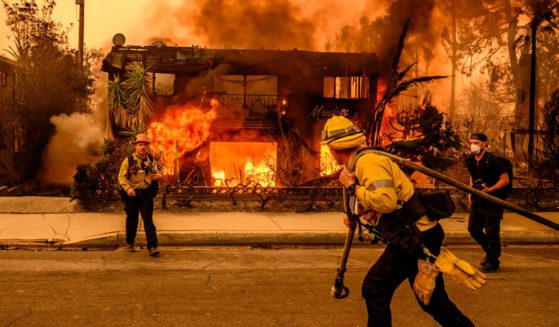
SCOTUS Blocks GOP Election Integrity Law Just Before November Election
The Supreme Court on Thursday rejected a Republican push that could have blocked more than 41,000 Arizona voters from casting ballots for president in the state that Democrat Joe Biden won by less than 11,000 votes four years ago.
But in a 5-4 order, the high court allowed some enforcement of regulations barring people from voting in state and local elections if they do not provide proof of citizenship when they register.
The justices acted on an emergency appeal filed by state and national Republicans that sought to give full effect to voting measures enacted in 2022 following Biden’s narrow win over Republican Donald Trump.
The court did not detail its reasoning in a brief order. Conservative Justices Clarence Thomas, Samuel Alito and Neil Gorsuch would have allowed the law to be fully enforced, while Justice Amy Coney Barrett would have joined with the court’s three liberals in fully rejecting the push, the order states.
The legal fight will continue in lower courts.
National and state Republicans had asked the Supreme Court to get involved in a legal fight over voter registration restrictions that Republicans enacted in Arizona in 2022 following Biden’s thin victory in the state in 2020.
The court’s action came after a lower court had blocked a requirement that called for state voter registration forms to be rejected if they are not accompanied by documents proving U.S. citizenship. A second measure, also not in effect, would have prohibited voting in presidential elections or by mail if registrants do not prove they are U.S. citizens. Federal law requires voters to swear they are U.S. citizens under penalty of perjury, but does not require proof of citizenship either to vote in federal elections in person or cast ballots by mail.
An appellate panel of three Trump appointees initially blocked the lower court ruling in part and allowed enforcement of a provision dealing with state voter registration forms. But another appellate panel voted 2-1 to keep both provisions on hold, with two Bill Clinton appointees allowing the voter registrations to go forward over the dissent of a Trump appointee.
The measures were passed on party-line votes and signed into law by then-Gov. Doug Ducey, a Republican, amid a wave of proposals that Republicans introduced around the country after Biden’s 2020 victory over Trump, including in Arizona.
For state and local elections, voters must provide proof of citizenship when they register or have it on file with the state. Since that is not a requirement for federal elections for Congress or president, tens of thousands of voters who have not provided proof of citizenship are registered only for federal elections.
There were 41,352 of those voters registered as of August 9th in Arizona, Democratic Secretary of State Adrian Fontes said.
Voting rights groups and the Biden administration had sued over the Arizona laws.
Kansas Attorney General Kris Kobach led Republican attorneys general in 24 states in supporting the restrictions, saying the “case threatens to continue chipping away Arizona’s authority to secure its own elections.”
Arizona House Speaker Ben Toma, who along with Senate President Warren Petersen had asked the court to take up the issue, said in a statement that the order was “a step in the right direction to require proof of citizenship in all our elections.” Toma and Peterson are both Republicans.
Federal-only voters have been a subject of political wrangling since the Supreme Court ruled in 2013 that Arizona cannot require documentary proof of citizenship for people to vote in national elections. The state responded by creating two classes of voters: those who can vote in all races and those who can vote only in federal elections.
One of the new laws sought to further divide voters, allowing votes in congressional elections without proof of citizenship, but denying the vote in presidential contests.
The Western Journal has reviewed this Associated Press story and may have altered it prior to publication to ensure that it meets our editorial standards.
Truth and Accuracy
We are committed to truth and accuracy in all of our journalism. Read our editorial standards.
Advertise with The Western Journal and reach millions of highly engaged readers, while supporting our work. Advertise Today.












